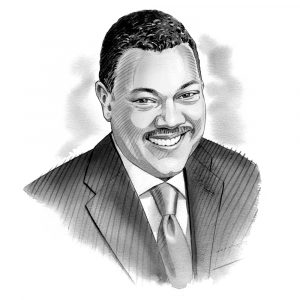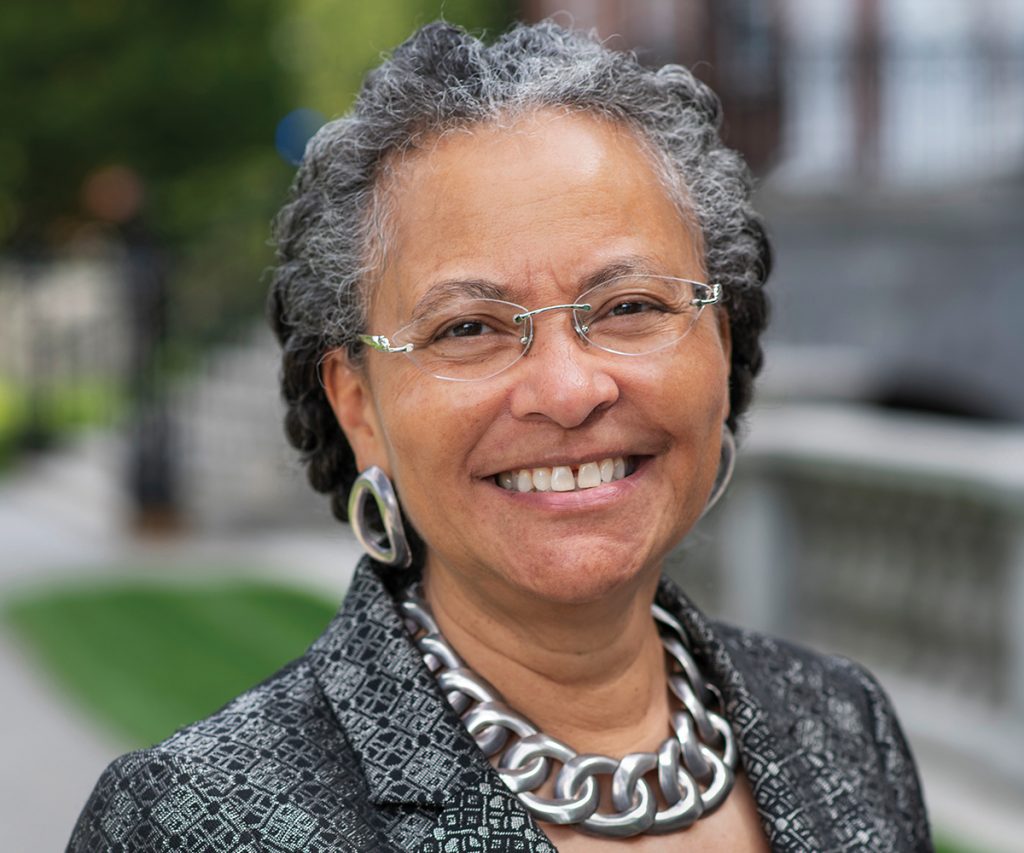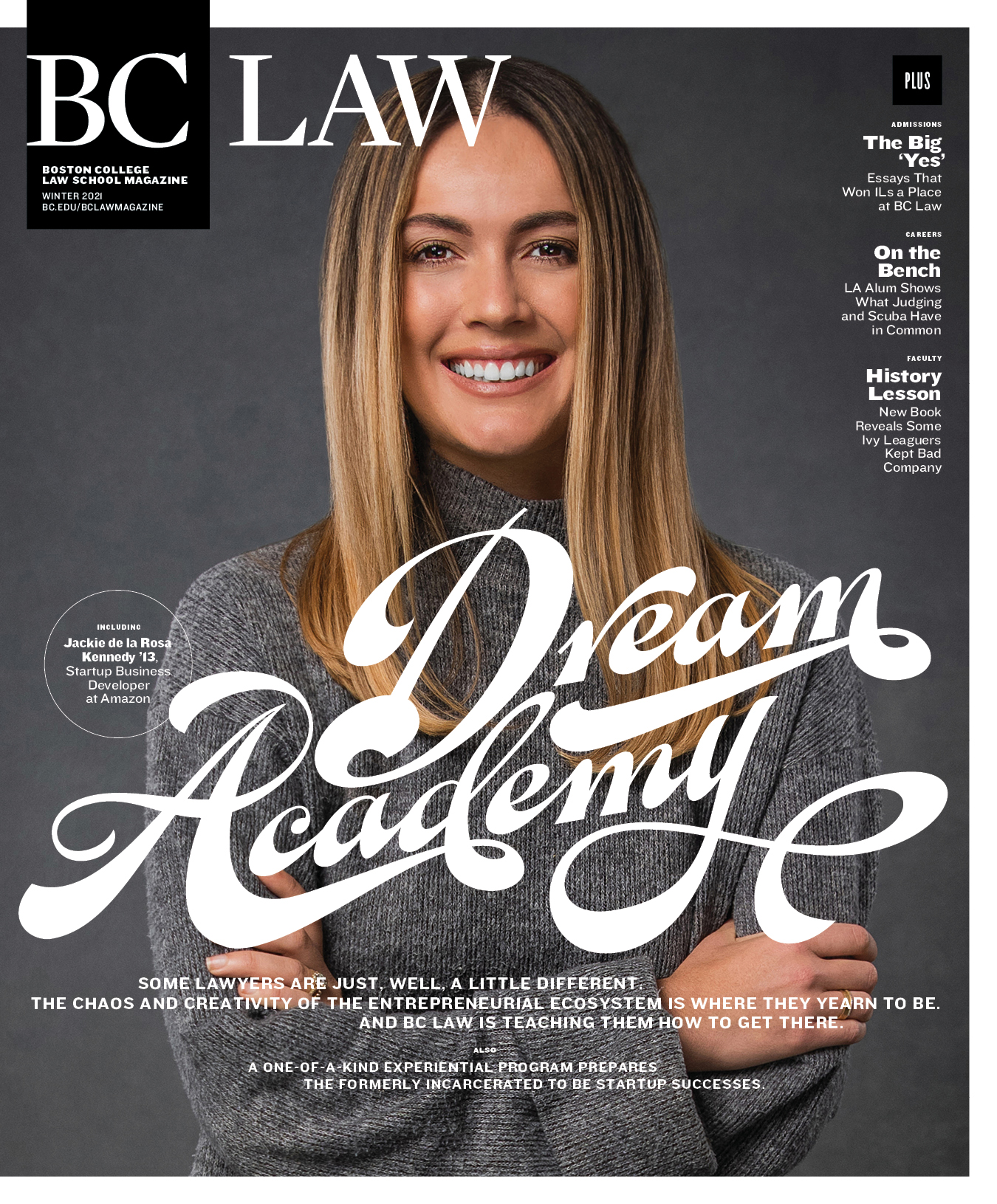Dr. Camara Phyllis Jones, past president of the American Public Health Association, senior fellow at the Morehouse School of Medicine, and anti-racism activist, was a guest speaker last fall at the Boston College Forum on Racial Justice in America, whose inaugural director is BC Law Dean Vincent Rougeau. In an interview before her talk, the two spoke about racism, the different ways bias manifests itself in law and medicine, and how best to define and counter such deep-seated prejudice.

CJ: Racism is foundational in our nation’s history and it continues to exist, with profoundly negative impacts on the health and well-being of the nation. In the overall discussion of racism, we have three tasks: naming racism, asking how racism is operating here, and organizing and strategizing to act in ways that will propel us forward. Those were the elements of a national campaign against racism that I launched in 2016, when I was president of the American Public Health Association.
VR: More and more, as we dive deeply into what some people have called a second-generation, post-Civil Rights-era discussion, what emerges is a new reckoning of how we need to engage the issues of structural racism in our society. Before, we were focused heavily on individuals: on not discriminating against individuals and not being racist ourselves. This is important work that had to be done. But it plays into a tendency in American culture to individualize everything.
CJ: Even now, when people say systemic racism or structural racism, it’s as if they were distinguishing it from something else, the individual racism that you’re talking about. But in my understanding, racism is the system. It’s this system mediated through people and then internalized.
We, as a country, are ahistorical. We act as if the present were disconnected from the past and as if the current distribution of advantage and disadvantage were just happenstance. We endorse the myth of meritocracy: that if you work hard, you will make it. Most people who’ve made it have worked hard. But not everybody who has made it worked hard, and many other people are working just as hard or harder who will never make it because of an uneven playing field.
There’s also the endorsement of the myth of American exceptionalism, that we’re so special, so unique, that we can’t even learn from other countries. The source of that is white supremacist ideology, which is not just a lightning-rod term. It’s a description of a false idea of a hierarchy of human valuation by race with white people at the top.
“Racism is a system that saps the strength of the whole society. We can act to dismantle racism.” —Camara Phyllis Jones, past president of the American Public Health Association, senior fellow at the Morehouse School of Medicine, and anti-racism activist
VR: This ahistoricism and its connection to structural racism can be seen in the law. With the nomination of a Supreme Court justice, there is talk about “originalism” as a way of thinking about constitutional law. The problem with this approach is you can’t freeze time. The past informs the present. If we’re not engaged in an honest assessment of the past, we’re going to end up with very distorted results about how we enforce the laws.
What we see is legal systems created with the assumption that everyone is engaging with the legal system on an equal basis. That is false. The outcomes reflect the inequality, but no one wants to address the foundational inequalities. They want to cling to the notion that the law is a system that is being exercised on the basis of equality.
CJ: In terms of public health, we saw the effects of structural racism acutely with all the Black folks on the roofs in New Orleans after Hurricane Katrina, when the levees broke. We’re already normalizing the disproportionate impact of Covid-19 on communities of color, just the way we have normalized the differences in infant mortality rates and the differences in maternal mortality rates, or even the differences in diabetes prevalence and other preexisting conditions.
VR: It comes down to how we think about rights and responsibilities. Many other democratic countries recognize in their constitutions certain rights that we do not. There, economic and social rights are paramount, so that people have a right to equality and education. They have a right to housing. That’s not always easy to actualize, but it is important that these rights are at least recognized.
CJ: We blame the people. We blame the disparate outcomes on the individual. There are actually people in this country who think that we have the best health care system in the world. We do not even have a health care system. We have various health care systems with lots of holes.
VR: We need to think more strategically about how we can band together across differences. Because at the end of the day, we are all undermined by the racism in society. Its negative impacts on the victims are more obvious, but the negative impacts on those who are not victimized by it are there as well.
CJ: Racism is a system that saps the strength of the whole society. We can act to dismantle racism.



